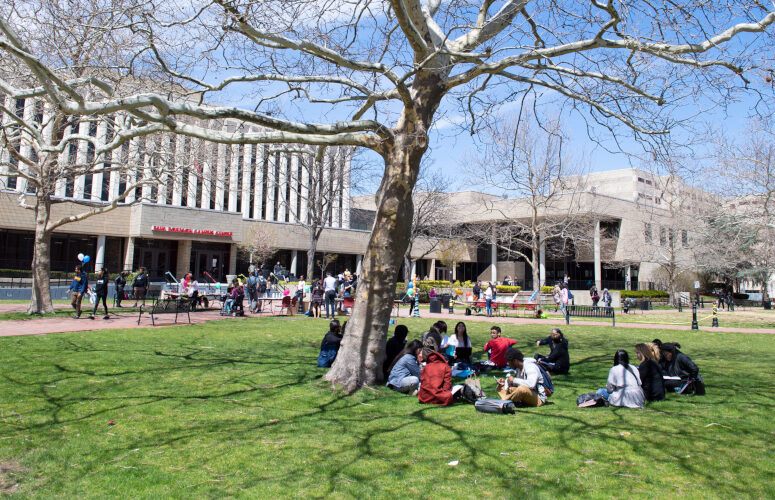
Rutgers-Newark Among Top Schools for Success of Low-Income Graduates
On Feb 9, 2022Rutgers University — Newark ranks number one in the nation for “return on investment” among institutions with a high percentage of low-income students, according to a new report by the Georgetown University Center on Education and the Workforce.
The study used eligibility for federal Pell Grants, which are awarded to students with high financial need, as an indicator of low-income status. It considered the percentage of schools’ Pell-eligible students and calculated return on investment as the amount of income graduates are projected to earn over a 40-year-period compared to the amount spent on college.
About one-third of college students nationwide are eligible for Pell Grants, but with 59% of its undergraduates Pell-eligible, Rutgers-Newark makes a large impact on increasing student earnings.
In addition to ranking first among schools where 50% or more students are Pell-eligible, Rutgers-Newark ranks 14th among public schools and 75th among all institutions, including those without a high proportion of Pell students.
“This study highlights a critically important way of looking at the quality of higher education institutions: how well we facilitate social mobility,” said Rutgers-Newark Chancellor Nancy Cantor.
“By focusing on how effective colleges and universities are at cultivating talented students to get from point A to point B, it underscores the actual impact that institutions have on students and the vital role we play as a public good by fostering individual and collective prosperity,’’ she added. “At a time when inequality in the U.S. is among the worst globally and is at the root of so much of the social divisiveness we see today, there is hardly a more important measure of quality.”
That perspective is shared by the Carnegie Classification, higher education’s leading framework for recognizing and describing institutional diversity, which announced this week that it is adding a new measurement to reflect how well institutions contribute to social and economic mobility while serving diverse students. U.S. Education Secretary Miguel Cardona agreed, saying, “Colleges and universities need to reimagine themselves around inclusivity and student success, not selectivity and reputation.”
According to the U.S. Census Bureau, those who earn bachelor’s degrees have higher lifetime earnings, lower odds of unemployment, and better health outcomes than non-college graduates. They also live longer, pay more in taxes, divorce less frequently, and are more likely to vote and to volunteer, according to the Hechinger Report.
But low-income students are far less likely to obtain a bachelor’s degree than students with more resources, according to a 2021 Center on Education and the Workforce report. Among Americans in the top 60% of earners, 47% have at least a bachelor’s degree, compared to 20% from the bottom 40%of earners.
The same study showed that helping low-income students complete college at rates equal to their higher income peers would collectively benefit society. According to the study, $956 billion annually would be realized through a combination of boosts to the nation’s Gross Domestic Product, higher tax revenue, increased spending on goods and services, reduced need for public assistance programs, lower incarceration rates, and lower spending on public health.
The current Georgetown report reflects a trend in college rankings to recognize the importance of social mobility in assessing colleges and universities. Washington Monthly considers it a central factor, consistently ranking Rutgers-Newark among the best universities in the nation both for social mobility and overall. In 2021, it placed Rutgers-Newark fifth for social mobility and 31st overall nationwide.
US News & World Report also now includes a measure for social mobility, in which Rutgers-Newark places third among all national universities. The magazine’s rankings have long included a measure for diversity in recognition of its importance in assessing institutional quality. Rutgers-Newark long has been ranked among the most diverse universities in the country, garnering the second highest score on this index most recently. Similarly, the Wall Street Journal/Times Higher Education College Rankings now include a measure called “Environment” to recognize the importance of student and faculty diversity in understanding quality. Rutgers-Newark placed second among all universities in that measure nationally and first in the Northeast in 2021.
To access more business news, visit NJB News Now.
Related Articles:





